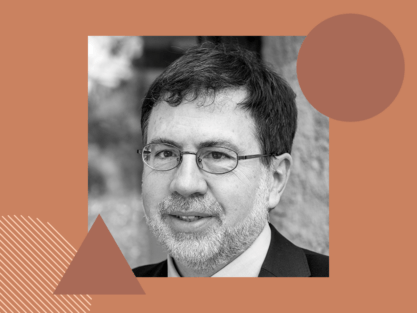April 5, 2022 – Over the past few weeks during the war in Ukraine, dangerous conditions have frequently prevented humanitarian organizations from delivering relief supplies and evacuating citizens. Claude Bruderlein, adjunct lecturer on global health at Harvard T.H. Chan School of Public Health and senior researcher at the Harvard Humanitarian Initiative, describes the challenges of humanitarian negotiations in regions affected by conflict.
Q: Can you describe your work on humanitarian negotiation?
A: I’ve been doing research and teaching on humanitarian issues since 1998, and for the last several years I’ve been studying how humanitarian organizations negotiate on the front lines—for example, to bring in polio vaccines in a conflict-affected area, or to provide therapeutic feeding to malnourished children. I’ve interviewed over 250 humanitarian practitioners on how they negotiate their access in these difficult situations in order to glean information on best practices.
Based on this research, I contributed to the establishment of the Centre of Competence on Humanitarian Negotiation five years ago. Based in Geneva, the Centre aims to systematize how humanitarians negotiate—to transform the research into tools and methods for training courses in order to support practitioners who work around the world for humanitarian organizations such as Médecins Sans Frontières, UNHCR (The UN Refugee Agency), the World Food Programme, and many local organizations. This is really the first time that there’s been a focused effort to understand how to improve negotiation outcomes in the humanitarian sector.
I’m the author of what is seen as the standard manual on humanitarian negotiation on the front lines. At Harvard, we’re working to develop courses for master’s students at Harvard Chan School and Harvard Kennedy School that offer a more theoretical and critical perspective on frontline negotiations.
Through these courses, we emphasize the importance of creating a conducive environment for discussion between parties to a negotiation. Negotiators should try to understand the stakes for all parties involved, be clear with their counterparts about their own objectives, listen carefully to their counterparts even if it may be difficult, be aware of how their body language may discourage dialogue, and be direct about options that won’t work.
Q: What have you been doing to support humanitarian organizations working in Ukraine, and what challenges are they facing?
A: I’ve worked with colleagues at the Centre of Competence to develop a specific set of techniques, tools, and methods to establish humanitarian corridors and pauses in hostilities. We are providing guidance to humanitarian practitioners in Ukraine as well as those about to enter Ukraine—from Poland, Romania, and Moldova—preparing them to negotiate in these very difficult situations. In recent days we’ve also been in discussions with colleagues from the International Committee of the Red Cross regarding their efforts to evacuate citizens from Mariupol—efforts that have been so far unsuccessful due to the lack of proper security guarantees. In such environments, one may get an approval to proceed from senior military officers but the problem is that often the people in charge may not entirely control the units who operate on the front lines. Some of these forces may actually be part of autonomous militias, or be mercenaries who don’t necessarily take orders. Worries are that if there’s not a clear chain of command over the troops on the ground, convoys may be attacked. Humanitarians are typically very cautious in these circumstances, they’re looking to make sure the information they get is truly to be trusted.
As we get closer to a negotiated settlement between the parties, the conflict situation tends to become more intense. A negotiated settlement is not a winding down of the conflict—it usually comes with a rise of hostilities as the parties push for more concessions at the negotiating table. This is what we’re seeing now. I’m very concerned that we may see an increase in violence over the coming weeks.
Q: What health impacts are you most concerned about as the Ukraine-Russia conflict continues, and how do you see this conflict playing out over the long term?
A: In Ukraine, the main problem is not necessarily lack of food or medicine. There are still reserves and supply chains functioning in the country. Rather, the main concerns are attacks on health infrastructure and warehouses. In some places, it’s unsafe to go to the clinic or to get food.
Amid the ongoing violence, there are many difficulties in maintaining global health objectives. For example, cases of polio have been reported in Ukraine over the recent months and a polio immunization campaign targeting 140,000 children has been suspended due to the conflict. As millions of people are leaving Ukraine to escape the violence, there are probably cases of polio moving as well—which may prompt the reappearance of polio in Western Europe. And how will Europe deal with an upsurge of COVID in this new refugee environment with over 4 million people on the move? This is what worries people.
Unfortunately, we have a situation where diplomacy failed to prevent a conflict. And this failure didn’t happen just now—it’s been going on for several years, because of our inability to maintain a dialogue on regional security and cooperation in Europe with the Russian Federation before things got out of control. We have been denouncing the Russian Federation, with diplomacy becoming entrenched in judgment values about issues such as human rights and nation building. The points raised by the Western countries were certainly valid but this is not what diplomacy is about. Diplomacy is about trying to manage your relationship over the long run despite differences. It will become even more challenging now.
I think that, even if we disagree, we need to maintain dialogue, not just condemn others again and again. The diplomats of tomorrow will be confronted with civilizational challenges such as climate change, mass migration, and denuclearization. I think it’s critical to equip them to build consensus, to understand differences, and to maintain dialogue despite distrust and potential hostilities. We need to prepare them for the difficult journey ahead.
